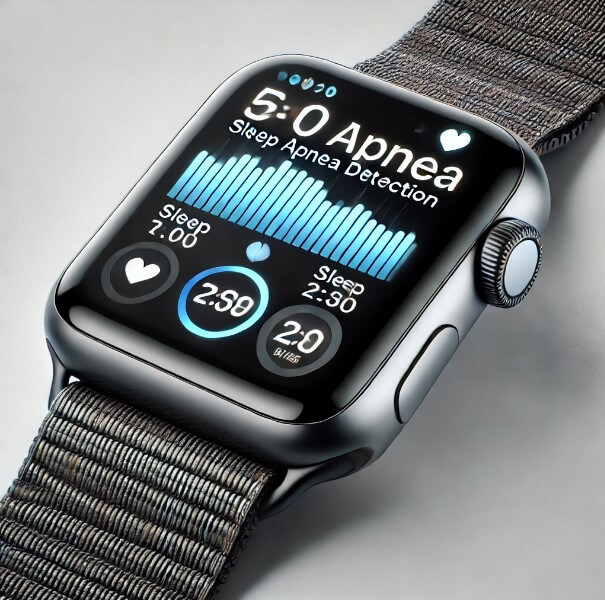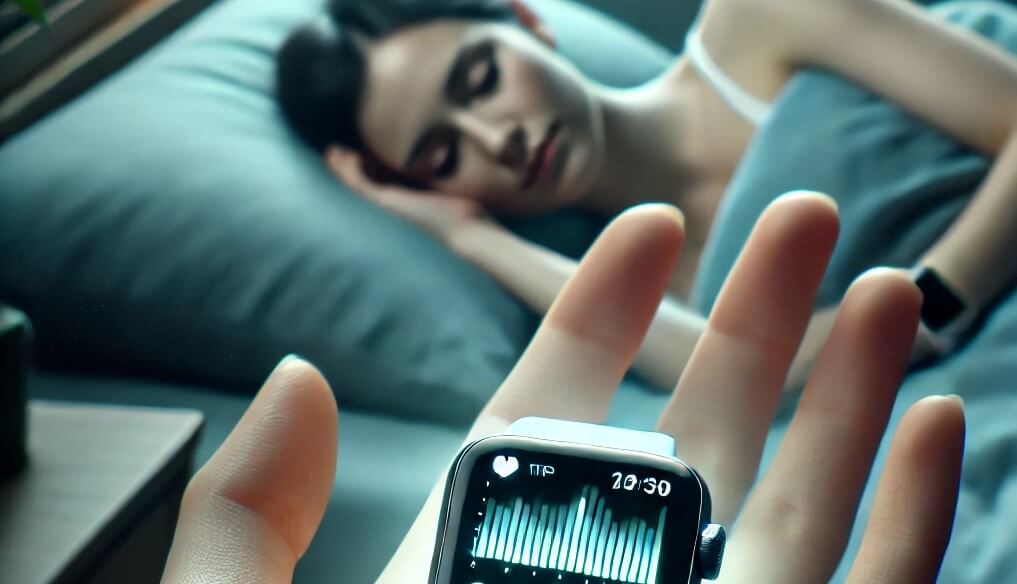Apple has received FDA approval for a sleep apnea detection feature on its latest Apple Watch models, including the Series 9, Series 10, and Watch Ultra 2. The announcement came just ahead of the release of the Apple Watch Series 10 on September 20. This new functionality, which was introduced during Apple’s iPhone 16 event, will become available with the upcoming watchOS 11 update.
How the Feature Works

The sleep apnea detection capability utilizes the Apple Watch’s built-in sensors, such as the accelerometer, to track and analyze sleep patterns. To identify potential signs of sleep apnea, the feature requires users to track their sleep for at least 10 nights over a 30-day period. During this time, the watch will collect data on nightly sleep disturbances, which can indicate risk factors associated with sleep apnea.
Once enough data is gathered, the device will assess whether the user may be at risk for sleep apnea. However, Apple emphasizes that this feature is not a diagnostic tool. Instead, it serves as an over-the-counter risk assessment, prompting users to seek a formal diagnosis from a healthcare provider if potential sleep apnea is detected. The condition, which involves interruptions in breathing during sleep, is linked to various symptoms, including insomnia, headaches, and daytime sleepiness, as noted by the Mayo Clinic.
FDA Classification and Usage
The U.S. Food and Drug Administration (FDA) has classified the sleep apnea detection feature as an “over-the-counter device to assess risk of sleep apnea.” This classification indicates that while the Apple Watch can signal a potential health concern, it does not replace professional medical evaluation. By guiding users to consult healthcare professionals, Apple aims to raise awareness about sleep apnea and encourage early intervention.
Apple Joins Other Consumer Electronics Firms

Apple is not the first consumer electronics company to introduce sleep apnea detection. French health tech company Withings has offered this feature in its sleep tracking devices for some time. Additionally, Samsung recently received FDA approval for sleep apnea detection in its Galaxy Watch line. The competition reflects the growing interest in leveraging wearable technology for health monitoring and preventative care.
A Mixed Moment for Apple Watch Health Features
The addition of sleep apnea detection arrives amidst other health-related changes for Apple Watch users. Notably, Apple has disabled the blood oxygen detection feature on its watches in the United States due to an ongoing patent dispute. Despite this setback, the company continues to expand its suite of health-focused functionalities, positioning the Apple Watch as a multifaceted tool for personal health management.

Conclusion
The FDA’s approval of Apple Watch’s sleep apnea detection feature marks a significant step forward in consumer health technology. By providing users with accessible health insights, Apple aims to empower individuals to take proactive steps in managing their health. While the tool is not meant to replace professional medical evaluation, it serves as a valuable addition to the growing range of health-tracking capabilities in wearable devices.






